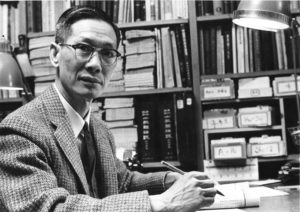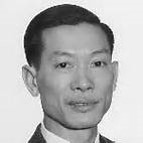About Professor Wing-tsit Chan

Professor Wing-tsit Chan
The W. T Chan Fellowship, a program of the Lingnan Foundation, is named in honor of Prof. Wing-tsit Chan, a 1927 alumnus of Lingnan University, a much revered teacher and an international scholar in Chinese Philosophy.
After Lingnan, Prof. Chan earned his Ph.D at Harvard in 1929, then returned to Lingnan to teach, and in 1931 was named Dean of Academic Affairs. In 1937, he fled the advancing Japanese invaders and moved to Honolulu, to teach at the University of Hawaii.
Prof. Chan had two careers. Teaching was his first, starting at Lingnan, then the University of Hawaii and finally a fruitful two decades at Dartmouth College in New Hampshire. During his thirty years of teaching in the United States, Prof. Chan was one of the principal scholars keeping Asian Studies alive to thousands of students when China was totally isolated from the West. He reached mandatory retirement age in 1966 and left Dartmouth. Shortly after this, China opened up to the West.
In 1979 Prof. Chan began his annual visits to the PRC and thus his second career: scholarship. Focusing on Neo-Confucianism, he published 11 books in English, 7 books in Chinese, numerous articles and lectures, all the while teaching and lecturing at Chatham College and Columbia University. He continued his scholarship until 1994 when he passed away. His publisher in Taiwan rushed his last book so it would be available as friends and colleagues gathered to honor him at St. Paul’s Chapel at Columbia University.
The connection between Prof. W. T. Chan and a W.T. Chan Fellow is simple. Prof. Chan had a chance to learn something from a different culture, then to return with that knowledge to serve his native land. World War II forced him out of China but with his scholarship, he returned. A W. T. Chan Fellow also has a chance to learn something from a different culture. How he or she uses that experience is in the future, but the name, W. T. Chan, can be a symbol of a productive life in service to society.
By Lo-Yi Chan, son of Professor Wing-tsit Chan, December 28, 2016

